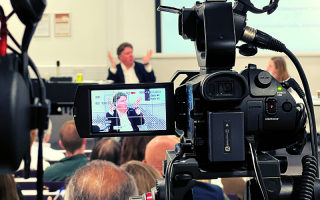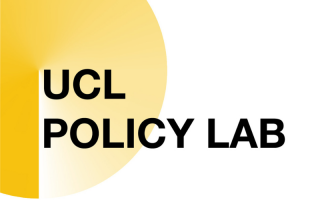Can Transparency in Government Stop Corruption?
16 November 2023, 6:15 pm–7:30 pm

Part of the UCL Policy & Practice seminar series.
This event is free.
Event Information
Open to
- All
Availability
- Yes
Cost
- Free
Organiser
-
Eleanor Kingwell-Banham
Location
-
SB31 Denys Holland Lecture TheatreBentham HouseEndsleigh GardensLondonWC1H 0EGUnited Kingdom
Corruption is a major societal challenge in governments around the world, undermining economic growth, trust in government and the delivery of basic services to citizens, from stolen medicines in clinics to crumbling roads. According to Transparency International's 2022 Corruption Perceptions Index, corruption perceptions are not improving. On the contrary, most countries are failing to stop corruption: 155 countries have made no significant progress against corruption or have declined since 2012. The UK is no exception, with scandals surrounding government procurement contracts during the COVID-19 pandemic and alleged abuses of the honours and peerages system. What can be done to tackle corruption in government? And what role, in particular, can transparency play? In this event, leading scholars and practitioners in corruption and transparency will diagnose the challenges and propose fresh ideas for enhancing integrity in government and ending corruption.
Meet the speakers
Dr Mihaly Fazekas is an associate professor at the Central European University, Department of Public Policy, and the scientific director of the Government Transparency Institute, a think-tank. In these roles, he promotes the implementation of new instruments for measuring corruption and quality of government around the world using ‘Big Data’.
Professor Liz David-Barrett is Professor of Governance and Integrity (Politics) in the School of Law, Politics and Sociology at the University of Sussex, and Director of the Centre for the Study of Corruption. She has written several reports for Transparency International, and has given extensive advice to governments, including advising the UK Department for International Development on its International Anti-Corruption programme and the UK Cabinet Office on the 2017-22 National Anti-Corruption Strategy.
Duncan Hames is Director of Policy at Transparency International UK, where he leads the public policy, business integrity and research teams. A former Liberal Democrat politician, he was the MP for the Chippenham constituency in Wiltshire from 2010 to 2015. Between 2012 and 2015, he served as Parliamentary Private Secretary to Nick Clegg when he was Deputy Prime Minister.
Chair: Professor Christian Schuster is Professor in Public Management in the UCL Department of Political Science and Academic Co-Director of the UCL Policy Lab.

This event will be recorded and the video will be uploaded to our YouTube channel.
You can subscribe to our YouTube channel to be alerted when the recording is uploaded.
Accessibility
There is step free access into the lecture theatre.
There are no doors in corridors which have to be opened manually.
There is space for an assistance dog
Accessible toilets.
There is not a hearing assistance system.
More info can be found here
 UCL Policy Lab
UCL Policy Lab

This event is organised with UCL Policy Lab. Bringing together ideas, individuals and institutions in a unique collaborative method to understand and tackle the challenges facing communities in the UK and around the world.
Other events in this series
 Close
Close

